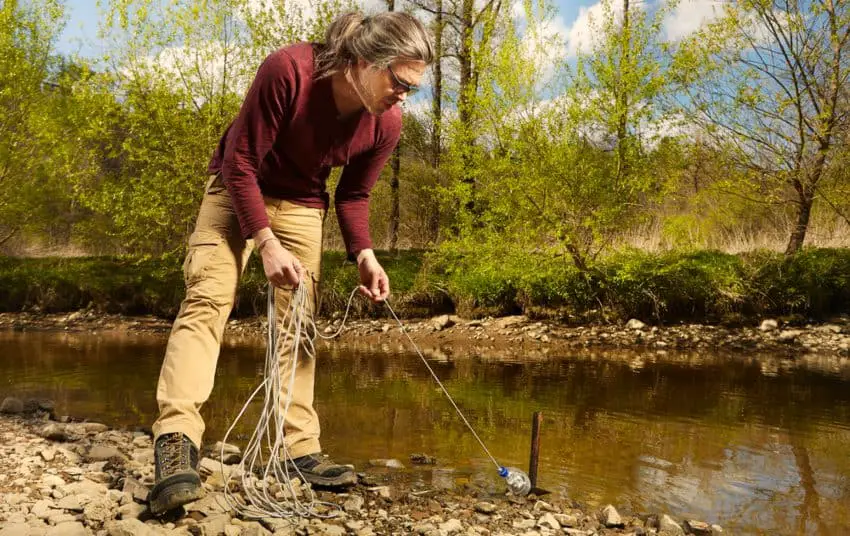
Magnet Fishing is a simple hobby, yet it requires a certain level of understanding and consciousness about the right practices to adopt …
… These Tips and Practices will save you a ton of time, not to mention that they will increase your chances to come up with highly valuable finds!
In this Post I list, 15 of my Best Magnet Fishing Tips that will certainly make life much easier for you.
15 Magnet Fishing Tips that Actually work
1. Be prepared
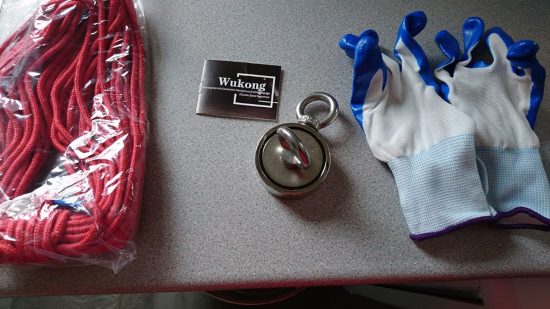
Sounds simple. That’s because it is. Double check your gear, then go back and do it again. A surefire way to ruin a fishing trip is to forget essential gear (Have a look at this complete Magnet Fishing Gear List).
Imagine showing up to the lake and you forgot the rope to your magnet.
That’s why it’s important to be as prepared as possible. Not just with gear, but with other essentials such as water, food, and sunblock.
Dress for the weather also. A quick search online will tell you what you should wear. And plan for how long you will be outside. Aim for three cups of water every hour, more if the outside temp pushes past 100 degrees.
You can’t prepare for every scenario, but you can strive for that goal. It is better to be over prepared than underprepared.
2. Have more than one magnet …
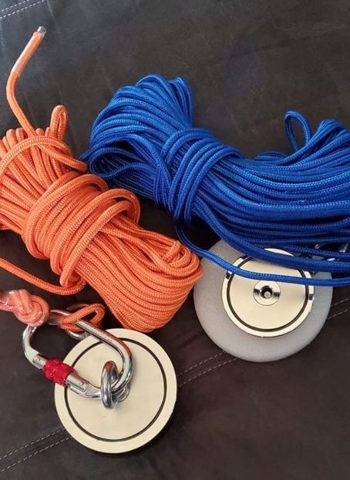
The 500lb pulling force magnet (Check it Here at Amazon) is one of the best beginners magnet, and overall magnet every fisherman should have in their arsenal.
It shouldn’t end there though. You should always have spare magnets of various sizes and forces.
Besides losing a magnet, you’ll want extra magnets for different objects.
For example, if you get stuck on a bicycle you’ll want a 1,200lb+ force magnet (Check it Here at Amazon) versus a 500lb. It should be obvious why. All that extra force to reel that heavy object in.
Different situations require different magnets.
One often overlooked magnet is the double sided magnet. These types of magnets are perfect for “scoping” out an area.
They can detect larger pieces of metal, while picking up the “trash” metal while fishing them.
Toss out a double sided magnet until you feel something heavy you can’t pull in. Once you pinpoint the metals location, throw in your stronger magnet to retrieve the metal.
Although technically a grappling hook is not a magnet, it acts as one to get metal back to the surface.
3. Vary your fishing style

Going back to the double sided magnet (Check this one Here at Amazon), you can use one of them to vary your fishing style. It breaks away from the constant up and down dropping from a vertical position.
One technique you’ll want to adopt to your fishing style is the “hopping” method. Lift the magnet off the bottom and slowly drag it towards you and let it fall back down to the bottom.
This method is best from bridges and piers.
Dragging is the most common method, but since the majority of your pulling force is from the magnet positioned directly down, this method is inefficient with a single magnet.
The double sided magnet is perfect for dragging.
You’ll want to switch up your techniques frequently. If one method is not producing, then switch magnets and techniques.
4. Gloves are Crucial!
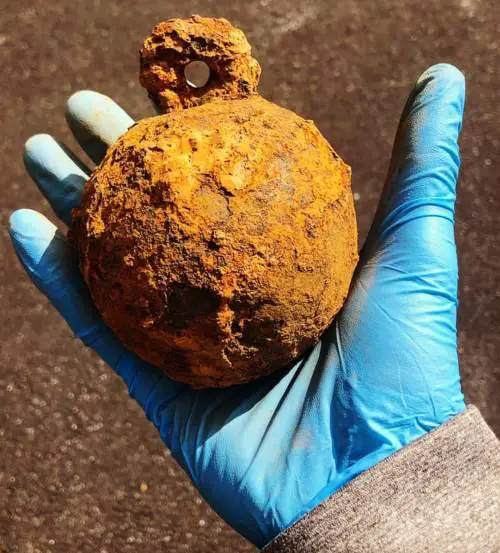
A tip like this should not have to be mentioned, but you’ll see it happen from time to time with other magnet fishermen. They forget or don’t own a pair of gloves (Check it Here at Amazon) and hurt their hands.
Don’t be this kind of magnet fisherman.
Protect your hands at all times. The metals you pull out of the water will sometimes be sharp, rusted, and ready to cause harm to you.
Plus, you’ll want a good firm grip on the rope when you are reeling in your magnet. Bare hands get sweaty and the rope will be slipping through your hands all the time.
Avoid the headache and invest in a pair of high-quality gloves that fit. As a bonus to this tip, keep an extra pair of gloves in your car.
Never handle anything with your bare hands, no matter how tempting it is to remove your gloves for a better grip. Until you completely inspect the object on where to safely grab the item, keep your gloves on.
5. Clean your magnet
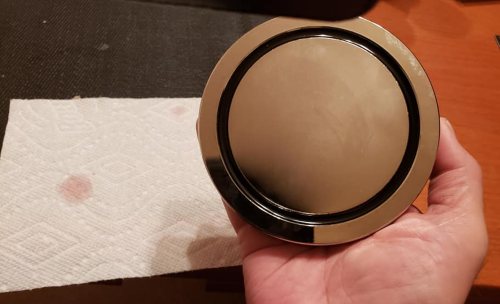
Take a flathead screwdriver and clean off your magnet once you notice small flakes of metal are littering your magnet.
You’ll want your magnet clear of debris as often as possible. Every few casts if can.
The cleaner your magnet is, the better it is at attracting more metal. Which should be your end goal.
Not only during your fishing trip should you periodically be cleaning your magnet, but at the end your trip as well.
The best way to do this is to scrape off scrap, then towel dry your magnet. The rest of your gear and treasure should get a wipe down as well. Leave your rope out to air dry. Preferably not coiled.
By drying everything off, you are preventing rust from forming all over your metals.
6. Know your Areas
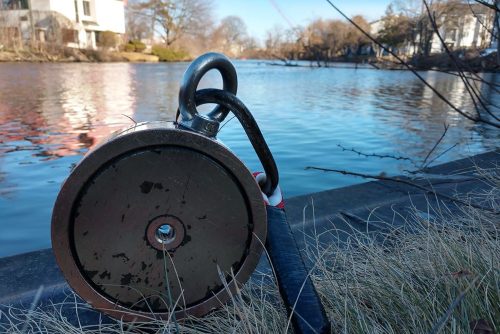
One of the best things you can do before exploring, is doing a little research beforehand (Have a look at this Complete List of Magnet Fishing Places). If you are unsure if a body of water is off limits, you can do an online search or call your city’s parks department.
It is better to avoid areas you are unsure of. More than likely, they won’t have much in them anyway.
High traffic areas possess the most amount of metal because of the volume of people that pass by.
Check your local areas before venturing out to remote areas.
Do some pond hopping. Plan a few creeks, streams, rivers, and lakes ahead of time and spend a little bit of time at each. You’ll learn their layouts and know how to avoid getting stuck in them.
7. Practice using your magnet
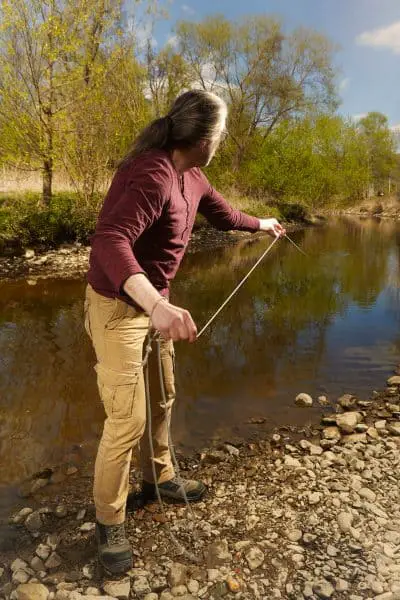
An often overlooked tip is to practice using your magnet. Carry it around in your background then give it a few casts.
How did it feel?
Was the magnet heavy, light, just right?
Place some metal around your backyard and practice reeling it in. Now imagine them being slightly heavier since they’ll be underwater.
How did your magnet handle the weight?
Know your magnet before you take out to the water for the first time. Magnet fishing is a skill.
And like all other skills, it requires practice. Those fortunate enough to have a pool in the backyard might want to do some experimenting with it.
Put various weights of metal in the pool, clean metal of course, and try to fish them out. You’ll learn right away what your magnet is capable of.
8. Learn strong knots
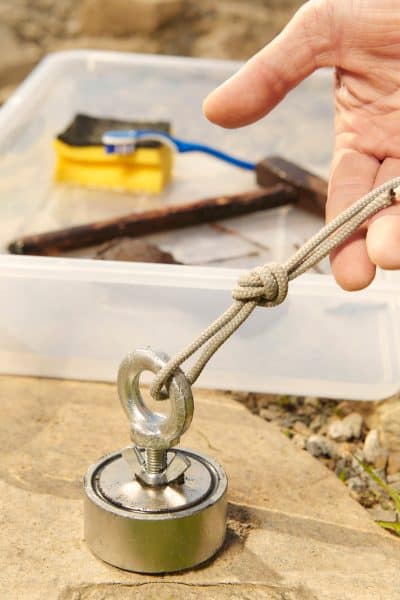
Sport fishermen are known for the vast knowledge of various knots. You don’t need to be a walking encyclopedia of knots, but you should know more than the basic knot to tie your shoes.
The figure eight follow through knot is essential to know. It will be the best knot for securing your rope to your magnet.
Don’t forget to use a quality rope (Check it Here at Amazon) to make the job done!
Another knot worth knowing is the double fisherman’s knot. This knot is perfect for tying two ropes together. And there will be situations when you will have to do just that.
Which leads into the next tip.
9. Bring a knife
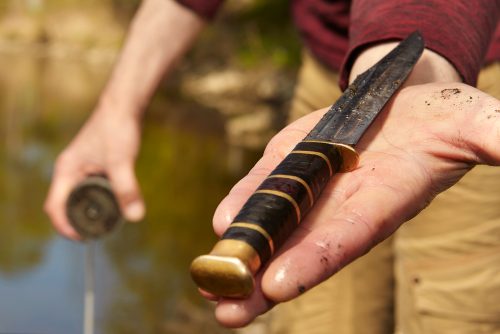
Knives are useful in countless real-world situations. As previously mentioned, there will come a time when you need to tie a rope to another rope. Whether to make it longer or because you had to cut off a stuck magnet.
Heavy duty nylon rope, the rope you should be using for magnet fishing, may need to be cut out in the field.
Or, you need to scrape pieces of scrap metal from your magnet and you don’t have a flathead screwdriver available. A knife is a good substitute.
You should always keep a quality knife (Check this one Here at Amazon) on you because of how useful they are.
Which one is up to you, but a small pocket knife is more than enough for most situations.
However, you should know your state’s laws regarding knives. Search online for your state so you’ll know what length is acceptable and where you can carry it.
Folding knives with serrated edges are some you should consider.
10. Learn when you are “stuck”
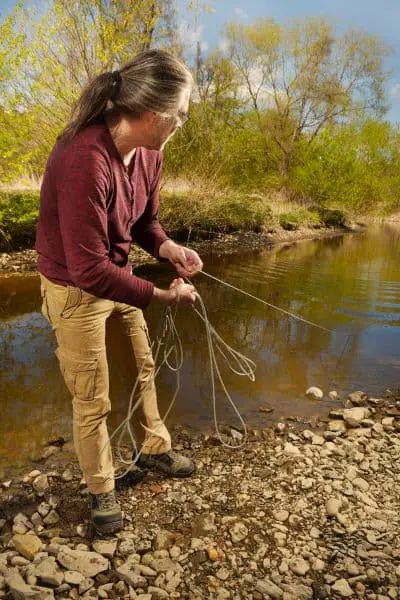
There are two main “stuck”scenarios! Either you are tangled up and a couple of strong tugs from different angles will get you lose or you are stuck on a piece of heavy metal.
The first kind of stuck is the worse believe it or not. Sometimes you can get stuck between some rocks or tangled up in a down tree. You’ll want to pull from various angles. At worse, you’ll have to swim in to retrieve your magnet.
The other situation involves brute force. Fishing docks and piers are notorious for getting magnets stuck to them.
To get unstuck from a beam, you’ll have to pull at an angle using the eyelet as a pivot point. Wrap the rope tightly around you and remember your leg muscles are stronger than your arm muscles.
You’ll have to give one large pull versus steady pulls if you want to get your magnet unstuck from heavy metal.
11. Have patience
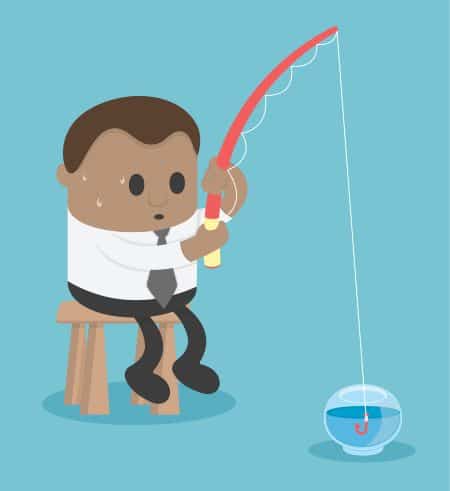
Fishing is fishing, regardless of equipment and purpose. It’s called fishing, not “catching.”
Have patience and enjoy the process. Take in your surroundings when you are out on your trip.
Rushing is as bad as not fishing at all. Some metals need time to stay stuck on a magnet in order to be reeling in. Constantly pulling your rope back to shore hard will result in no treasure at all.
Take your time and get a “feel” for what your magnet is attracted to. This will tell you if something is in the water, and whether you should throw a stronger magnet in the water.
Above all else, enjoy nature as much as you do fishing. The best way you can do this is to take a break every predetermined interval. Let’s say every 30 minutes you take a step back and look around.
Besides helping you relax when the fishing is tough, it will also build your situational awareness. Which is important to being safe.
12. Be mindful of your fellow fishermen
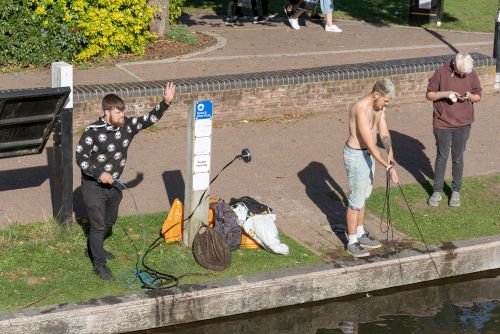
Speaking of knowing your surroundings, understand the body of water you are fishing is not all yours.
Being oblivious of your surroundings is rude and can lead to trouble.
If you see someone fishing in the area, be mindful of them and don’t toss your magnet in the water around them. You will be scaring away the fish.
Other magnet fishermen may be in the area as well. Either way, you don’t want to scare the fish away or get tangled in someone else’s line.
13. Plan ahead how you will transport your finds
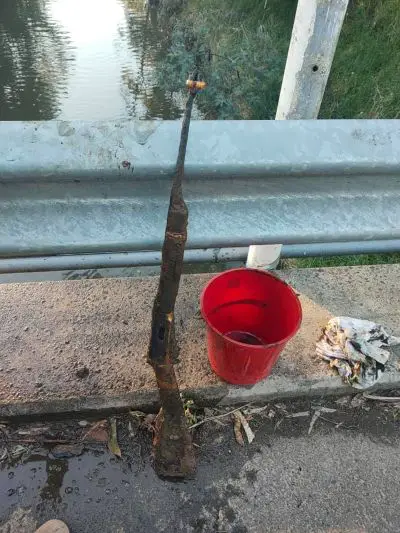
So you found a couple of buckets of scrap metal, a road sign, and a bicycle, so now what? Did you plan on what you were going to do with your finds?
Everyone gets caught up with finding metal they forget they have to do something with their finds afterwards. Some fishermen have a place for their trophy finds.
You should know beforehand what you will be doing with what you find. Are you going to throw it back or take it home? Recycle or repurpose?
These are questions you should ask yourself before you take your magnet out to the water.
Not only will you need to store these finds but you need to know how you plan on transporting them. Grab yourself a 5-gallon bucket (Check it Here at Amazon) from a big box chain home improvement store.
They make perfect storage for your equipment and finds.
14. Join a magnet fishing community on or offline
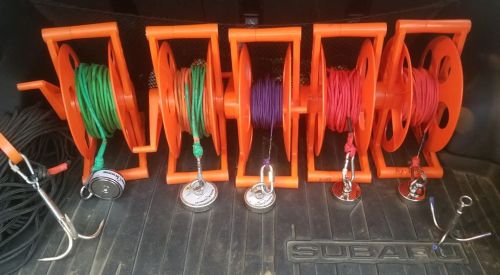
This tip is up for debate because you don’t necessarily need others to enjoy this hobby. However, online forums are great places for information.
You can find new spots to fish, people to join on fishing trips, and a community online that will provide help with the hobby.
When you feel lost, an online forum dedicated to magnet fishing will steer you on the right path.
15. Know that every trip will not always produce
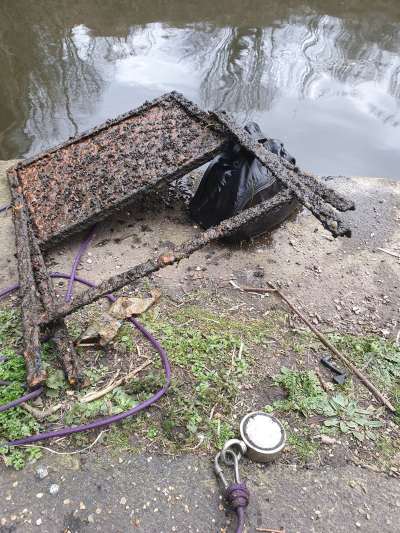
The most important tip you should know is, not every trip you have will produce valuable items. Instead, they will provide fun experiences you can’t have anywhere else.
That’s right.
You will not always pull out the water, something high in value or something that will make you a fortune.
That doesn’t mean you will never do either of these things.
It takes patience to get the most out of this hobby, which is half the fun.
Exploring, trying new techniques and the thrill of reeling in metal stuck to your magnet makes the hobby exciting. Keep at it and don’t let dry spells ruin the fun.
You can’t catch if you don’t fish. And you never know what will be attached to your magnet till you reel it in.
Final Thoughts
I really hope that these tips were useful and have resonated with you!
My main goal is to get you excited to go out there and throw your magnet, all these tricks I’ve mentioned will start making sense over time …
Finally, you really should have a look at this Magnet Fishing Guide! I include everything you need to know there!
